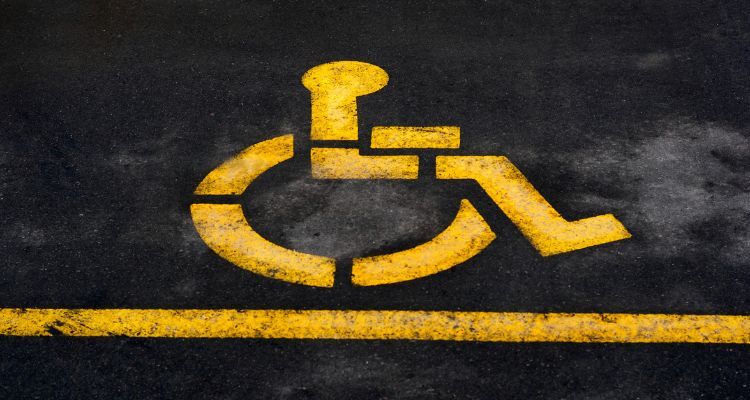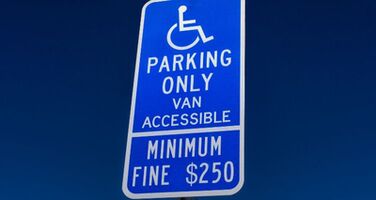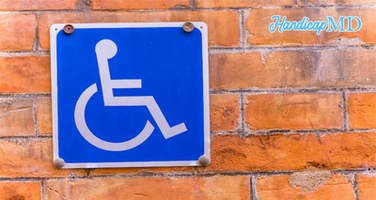
Handicap Placard Violations and Penalties in New York: What You Need to Know
Navigating the rules surrounding disability tags in NY can be complex, especially when it comes to understanding violations and penalties. These passes are essential for individuals with disabilities, providing them with access to designated parking spaces that enhance mobility and independence. However, misuse of these passes can lead to significant penalties, undermining the purpose they serve. In this article, we will explore the common violations associated with handicap placards in New York, the penalties for such infractions, and the importance of responsible usage to ensure that accessible parking remains available for those who truly need it. Whether you are an authorized holder or simply looking to understand the regulations better, this guide will provide you with the necessary insights to navigate this important topic.
1. Understanding Handicap Placards in New York
What is a Disability Tag?
A disability tag, also known as a parking placard or permit, is a special identification issued by the Department of Motor Vehicles (DMV) that allows individuals with qualifying disabilities to park in designated accessible parking spaces. These spaces are usually located near entrances to buildings, making it easier for individuals with mobility impairments to access facilities.
Eligibility for Disability Tags
In NY, to qualify for a handicap permit, an individual must have a severe, permanent, or temporary disability that significantly impairs their mobility. Conditions that typically qualify include, but are not limited to:
- Inability to walk 200 feet without rest.
- Use of a wheelchair, cane, crutches, or other assistive devices.
- Severe lung or cardiac conditions.
- Limited or no use of one or both legs.
- Visual impairments or legal blindness.
Eligibility is determined through a medical certification process, where a licensed healthcare provider must confirm the individual's disability.
Application Process
Applying for a New York disabled permit involves submitting an application form to the local DMV office or through a municipality that issues these special passes on behalf of the DMV. The application requires:
- Personal identification and residency proof.
- A medical certification from a licensed physician.
- Completion of any additional forms or requirements specific to the municipality.
Once approved, the applicant will receive either a permanent or temporary disability tag, depending on the nature of their condition.
2. Types of Handicap Placards in New York
Permanent Disability Tags
Permanent disability tags are issued to individuals with long-term or permanent disabilities. These tags typically need to be renewed every few years, although the specific timeframe varies depending on local regulations. They are meant for individuals whose conditions are unlikely to improve over time.
Temporary Disability Tags
Temporary disability tags are issued to individuals with short-term disabilities or conditions expected to improve, such as those recovering from surgery or injury. These tags are valid for a shorter period, usually six months, but can be extended if the condition persists.
Special Tags for Veterans
NY also provides special disability tags for veterans who have service-connected disabilities. These tags may have additional privileges, recognizing the service and sacrifice of these individuals. Veterans must provide documentation from the Department of Veterans Affairs to qualify.
3. Regulations Governing the Use of Handicap Placards
Where Can Disability Tags Be Used?
Disability tags allow authorized holders to park in designated accessible parking spaces, which are often marked with the international symbol of access (a wheelchair symbol). These spaces are typically wider than regular parking spaces to accommodate vehicles with ramps or other assistive equipment.
Authorized holders can also:
- Park in metered parking spaces without paying fees in some municipalities.
- Park in spaces with time limits for longer periods.
However, these privileges vary by city and county, so it's essential to check local regulations.
Restrictions on Disability Tag Usage
Disability tags are strictly for the use of the person to whom they are issued. This means:
- The tagholder must be present when the tag is used.
- The vehicle must be actively transporting the person with the disability.
- Tags cannot be used by family members, friends, or caregivers unless the authorized holder is being transported.
Violating these restrictions can lead to severe penalties, including fines, confiscation of the tag, and criminal charges.
Displaying the Disability Tag Correctly
To avoid violations, it’s crucial to display the disability tag correctly. The tag should be hung from the rearview mirror when the vehicle is parked in a designated space. When driving, the tag should be removed to avoid obstructing the driver’s view. Misdisplaying the tag, such as leaving it on the dashboard or failing to hang it properly, can result in a ticket.
4. Common Disabled Permit Violations
Misuse of Disability Tags by Unauthorized Individuals
One of the most common violations is the misuse of a disability tag by someone other than the authorized holder. For instance, a family member might use the tag to park in a convenient spot without the disabled individual in the vehicle. This is illegal and considered fraud.
Using Expired or Invalid Disability Tags
Using a tag that has expired or been revoked is another frequent violation. Drivers must ensure that their tags are current and have not been tampered with. Municipalities often conduct checks to ensure that the tags are valid.
Falsifying Information to Obtain a Disability Tag
Some individuals go as far as to falsify medical information or claim disabilities they do not have to obtain a tag. This is not only unethical but also a criminal offense. Authorities in NY are vigilant about investigating such cases, and violators face severe penalties.
Parking in Non-Designated Areas
Even with a disability tag, parking in spaces not designated for disabled parking (e.g., in a no-parking zone, loading zone, or private property without permission) constitutes a violation. The tag only provides certain privileges and does not exempt the holder from all parking regulations.
5. Penalties for Disabled Permit Violations
Fines and Penalties for Misuse
In NY, fines for disability tag violations can be steep. Penalties vary depending on the severity of the offense:
- First Offense: Typically, fines range from $250 to $500.
- Subsequent Offenses: Repeat violators may face higher fines, often exceeding $1,000.
Some municipalities may impose additional administrative fees or require attendance at a court hearing.
Impoundment of Vehicle
In cases of serious misuse, such as repeated violations or fraudulent use of a disability tag, law enforcement may impound the vehicle. Retrieving an impounded vehicle involves additional costs, including towing and storage fees, which can be substantial.
Criminal Charges for Severe Violations
Severe violations, particularly those involving falsification of information or repeated misuse, can lead to criminal charges. These charges may include fraud, forgery, or theft of services, depending on the nature of the violation. A criminal record can have long-lasting effects, including difficulty finding employment or obtaining housing.
Long-term Consequences for Repeat Offenders
Repeat offenders face more than just fines. Chronic misuse of disability tags can result in the permanent revocation of the tag, making it impossible for the violator to obtain a disability tag in the future. This can be especially problematic for individuals who genuinely need the tag but lose it due to repeated violations.
6. Legal Recourse for Disabled Permit Holders
Contesting a Violation Ticket
If you believe a ticket was issued in error, you have the right to contest it. This involves:
- Filing an appeal with the local traffic court.
- Providing evidence, such as photos or witness statements, to support your case.
- Attending a hearing where you can present your argument.
Many cases are resolved in favor of the authorized holder if they can prove that the tag was used correctly.
Legal Defenses for Disability Tag Holders
Legal defenses might include:
- Proof of medical necessity or recent renewal of the disability tag.
- Evidence that the vehicle was transporting the disabled individual at the time of the alleged violation.
- Documentation showing that the disability pass was not expired or invalid.
Consulting with an attorney experienced in traffic or disability law can improve the chances of a successful defense.
Seeking Legal Advice
If you’re facing serious penalties, such as criminal charges or significant fines, seeking legal advice is crucial. An attorney can guide you through the process, help you understand your rights, and develop a strategy for your defense. In some cases, legal representation can lead to reduced penalties or the dismissal of charges.
7. Reporting Handicap Placard Violations
How to Report Misuse
If you witness someone misusing a disability tag, you can report it to local authorities. Most municipalities in NY provide hotlines or online forms for reporting violations. When reporting, provide as much detail as possible, including:
- The license plate number and description of the vehicle.
- The time and location of the incident.
- A description of the misuse observed.
Your report can help authorities take action against those who misuse disability tags, protecting the rights of those who genuinely need them.
Role of Law Enforcement and Public Awareness
Law enforcement agencies play a critical role in monitoring and enforcing disability tag regulations. However, public awareness is equally important. Educating the public about the importance of these tags and the consequences of misuse can deter potential violators. Campaigns and educational programs can make a significant difference.
Protection for Whistleblowers
Individuals who report disability tag violations are often concerned about retaliation. In NY, whistleblowers are protected by laws that ensure their confidentiality and protect them from harassment or other negative consequences. Reporting misuse is a civic duty, and whistleblowers should feel secure in doing so.
8. Preventing Handicap Placard Misuse
Educating the Public
Preventing disability tag misuse starts with education. Public campaigns can inform the community about the importance of respecting disability parking spaces and the legal consequences of violations. Schools, workplaces, and community centers can play a role in spreading awareness.
Monitoring and Enforcement by Authorities
Regular monitoring of disability tag use by law enforcement can deter misuse. This can include random checks of parked vehicles in disabled parking spaces to ensure that the tags are valid and being used correctly. Increased enforcement, especially in high-traffic areas, can reduce the incidence of violations.
Promoting Ethical Behavior Among Permit Holders
Permit holders themselves must also act responsibly. This includes not lending their tag to others and ensuring that they only use the tag when necessary. Ethical behavior by authorized holders helps maintain the integrity of the system and ensures that those who genuinely need the tags can use them.
9. The Impact of Disabled Permit Misuse on the Disabled Community
How Misuse Affects Those with Disabilities
Misuse of disability tags directly harms individuals with disabilities. When able-bodied individuals take up accessible parking spaces, those who truly need them may be forced to park further away, making it difficult or impossible for them to access essential services. This not only causes inconvenience but can also endanger the health and safety of disabled individuals.
The Importance of Fair Access to Parking
Accessible parking is a critical component of an inclusive society. It ensures that everyone, regardless of physical ability, has equal access to public spaces. Fair access to parking spaces is a matter of civil rights, and misuse of disability tags undermines this principle.
Building a More Inclusive Society
Addressing disability tag misuse is part of a broader effort to build a more inclusive society. By respecting the rules surrounding disability tags and ensuring that they are used appropriately, we contribute to a community where everyone is valued and supported.
10. Government and Community Initiatives to Curb Violations
Awareness Campaigns
Government agencies and nonprofit organizations in NY often run awareness campaigns to educate the public about disability tag regulations. These campaigns may include advertisements, community workshops, and informational brochures distributed at DMV offices and other public locations.
Technological Solutions
Advances in technology offer new ways to prevent and detect disability tag misuse. Some cities are implementing electronic verification systems that allow law enforcement to quickly check the validity of a disability tag using a database. Additionally, apps are being developed to help report violations in real-time.
Community Engagement Programs
Engaging the community in the fight against disability tag misuse is crucial. Programs that encourage citizens to report violations and promote respect for accessible parking spaces can have a lasting impact. Community leaders and organizations can play a key role in these efforts.
11. How to Properly Use a Handicap Placard
Guidelines for Permit Holders
Proper use of a handicap placard is straightforward but requires attention to detail:
- Always display the tag prominently when parked in a designated space.
- Remove the tag from the mirror when driving to avoid obstructing your view.
- Only use the tag when the person it was issued to is present in the vehicle.
Common Mistakes to Avoid
Some common mistakes that can lead to violations include:
- Forgetting to remove the tag from the mirror while driving.
- Lending the tag to someone who is not authorized to use it.
- Parking in non-designated areas or private property without permission.
Best Practices for Maintaining Compliance
To ensure ongoing compliance with disability tag regulations:
- Regularly check the expiration date of your tag and renew it before it expires.
- Keep a copy of your medical certification and permit paperwork in your vehicle.
- Report any lost or stolen tags immediately to the DMV to prevent misuse.
12. Renewal and Replacement of Disabled Permits
How to Renew a Disability Tag in New York
Renewing a disability tag in NY requires submitting a renewal application to the DMV or your local issuing authority. For permanent disability tags, the renewal period is typically every four years, while temporary tags may need more frequent renewal depending on the condition.
Replacement Procedures for Lost or Stolen Tags
If your disability tag is lost or stolen, you must report it to the DMV and request a replacement. The replacement process may involve:
- Submitting a police report if the tag was stolen.
- Providing identification and proof of disability.
- Paying a replacement fee.
Avoiding Delays in Renewal
To avoid delays in renewing your disability tag:
- Start the renewal process early, preferably a few months before the tag expires.
- Ensure that your medical certification is up to date.
- Keep track of your tag’s expiration date and renewal requirements.
Frequently Asked Questions
What Happens If Someone Else Uses My Disability Tag?
If someone else uses your disability tag without you being present, they are committing a violation. This can result in the revocation of your tag, fines, and penalties for the individual who misused it.
Can I Use My Disability Tag in Other States?
Yes, disability tags issued in New York are generally recognized in other states, allowing you to park in designated accessible spaces. However, you should always check the specific regulations of the state you are visiting, as some rules may differ.
What Should I Do If My Disability Tag Expires?
If your disability tag expires, you must renew it through the DMV before continuing to use it. Using an expired tag can result in fines and penalties, so it’s important to keep your tag up to date.
How Are Penalties for Disability Tag Violations Enforced?
Penalties are typically enforced through traffic tickets issued by law enforcement officers. In severe cases, such as fraud or repeated violations, criminal charges may be filed, and the case could go to court.
Can I Appeal a Ticket for a Disability Tag Violation?
Yes, you can appeal a ticket if you believe it was issued in error. You will need to provide evidence to support your case, such as documentation showing that the tag was valid and used correctly at the time of the alleged violation.
What Are the Differences Between Temporary and Permanent Disability Tags?
The main difference is the duration of validity. Temporary disability tags are for short-term conditions and typically last up to six months, while permanent tags are for long-term disabilities and need renewal every four years. Both types of tags grant the same parking privileges.
Conclusion
Understanding handicap placard violations and penalties in New York is essential for ensuring compliance and protecting the integrity of accessible parking spaces. By being aware of the rules and potential consequences, individuals can avoid fines and contribute to a fairer system for those who genuinely need these accommodations. It is vital to use disability tags responsibly and report any misuse, helping to maintain accessibility for everyone in the community. By fostering awareness and accountability, we can ensure that accessible parking remains available for those who truly require it.
In NY, strict regulations govern the use of disability tags, and violations come with severe penalties. Understanding these rules, adhering to them, and reporting misuse are all critical steps in protecting the rights of the disabled community.
By respecting the system and promoting ethical behavior, we can ensure that accessible parking spaces remain available for those who need them most. Everyone has a role to play in maintaining the integrity of disability tags—from the individuals who use them to the broader community that helps enforce the rules.
Let’s work together to build a more inclusive and accessible society, where everyone has the opportunity to participate fully, regardless of physical ability.
.png)






